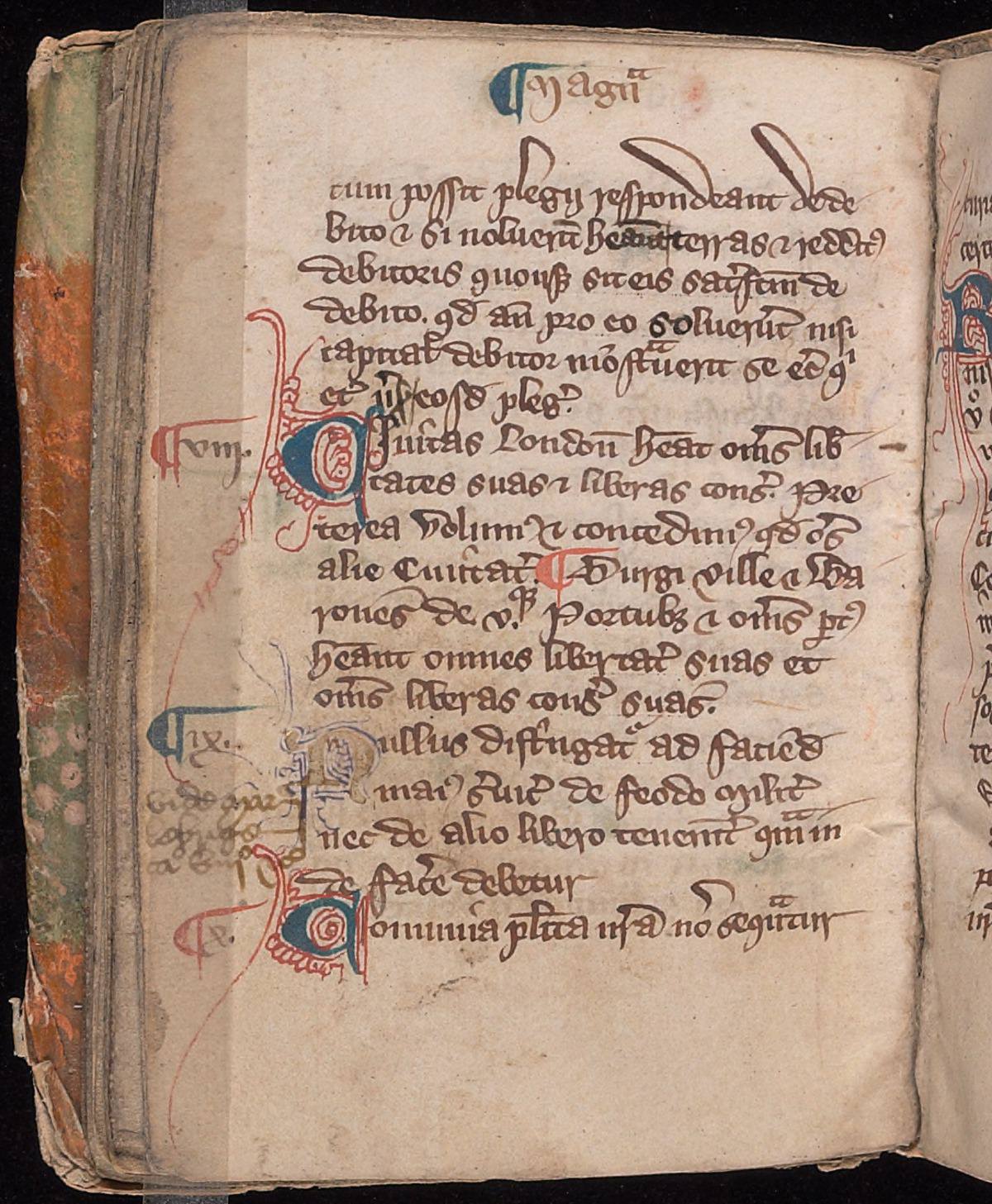In his recent Continuing Legal Education talk, “Litigating Attorney-Misconduct Claims Under New York’s Judiciary Law §487,” Jeremy C. Bates (of Matalon Shweky Elman PLLC www.mselaw.com) points to Beinecke Library’s Osborne a57 (Statuta vetera, England, between 1300 and 1399) to highlight the historical context of New York Judiciary Law § 487.
An early translation of a relevant passage from Osborne a57, Statuta Vetera, England (1300-1399), reads: It is provided also, that if any serjeant, pleader, or other, do any manner of deceit or collusion in the king’s court, or consent unto it, in deceit of the court, or to beguile the court, or the party, and thereof be attainted, he shall be imprisoned for a year and a day, and from thenceforth shall not be heard to plead in that court for any man…
While the New York Judiciary Law updates the 1275 statute, § 487 still makes deceit or collusion a crime (a misdemeanor). Section 487 today also adds a civil cause of action that enables the party wronged to sue the lawyer for treble damages.
About Osborne a57: Manuscript, on vellum, in a single hand, of English statutes, many from the reign of Edward I. The volume opens with a table of chapters in the principal statutes, headed “Magna carta,” followed by a copy of the Magna Carta as confirmed by Edward I (ff. 17-26) and a copy of his confirmation of the Carta de foresta. This is followed by copies of statutes including the Statutes of Westminster I and II; Quia emptores (Statute of Westminster III); statutes of mortmain and champerty; and Frangentibus prisonam.
View a digital version in the Beinecke Library’s Digital Images Online database
Jeremy C. Bates’s talk is available online here: https://www.lawline.com/

